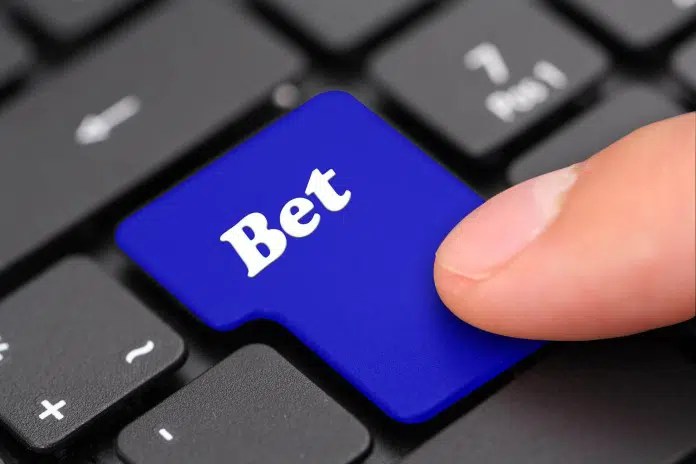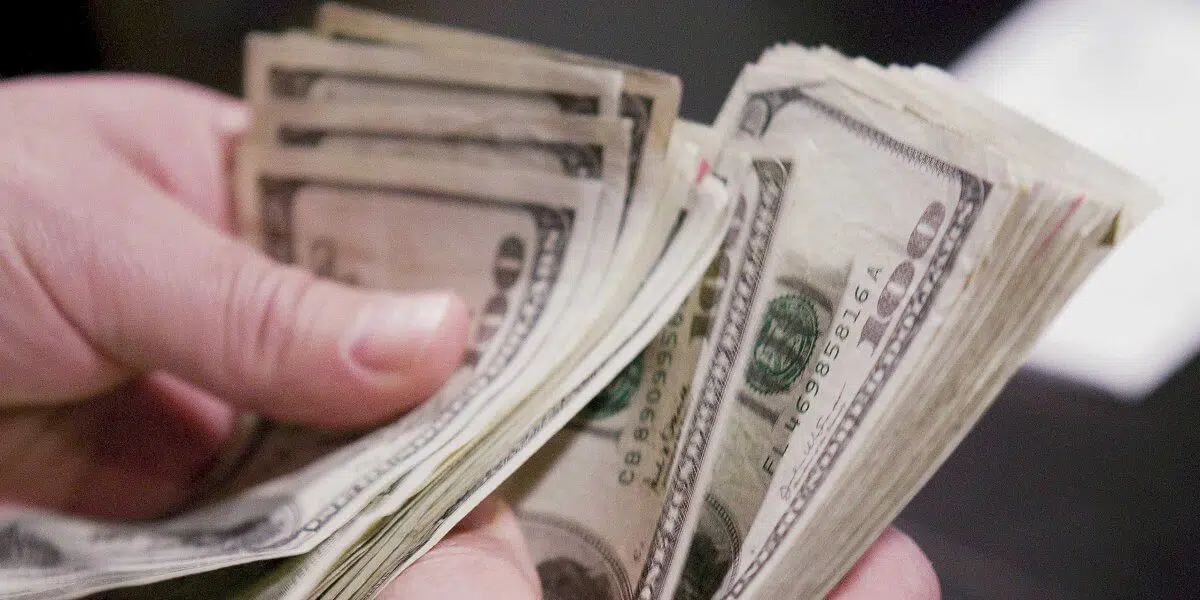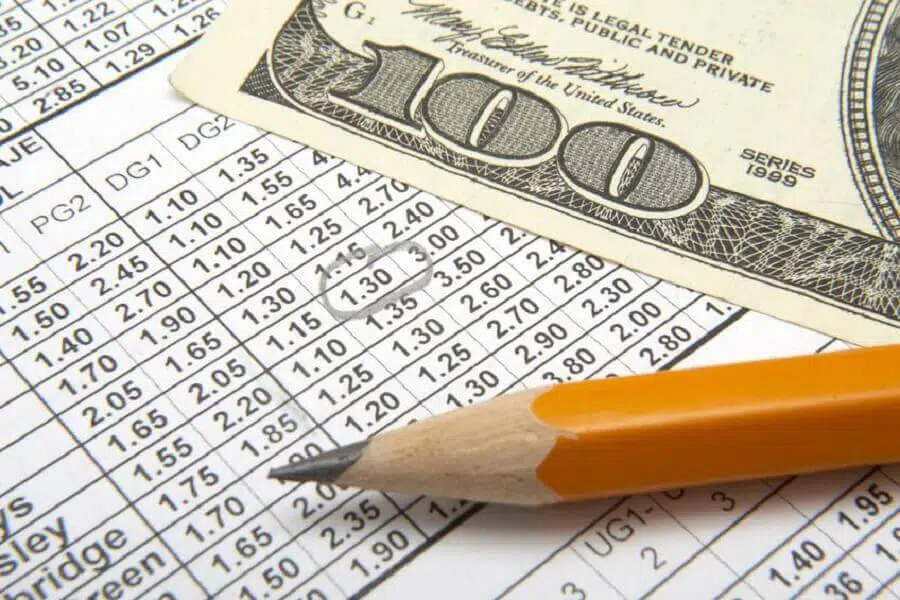The dictionary definition of ‘wager’ is “something risked or staked on an uncertain event”, and a lot of people assume that there’s no strategy involved with sports betting, but that couldn’t be further from the truth.
This tell-all guide will give you the basic skills and insights into the online betting world, all before you start entering your credit card information into a random betting site. And don’t worry, if you are new to betting we’ve got a study guide dictionary ready for you!
How to Bet on Sports Online
With smartphones in the pockets of most people, betting sites have never been more accessible or plentiful. Today, they cover every sport and event imaginable, and the competition for odds, lines, and bettor recruits is a booming industry.
Online Sports Betting Basics
Wagers (or bets) boil down to two groups with opposing perspectives who endorse their views with money. The group with the correct prediction wins the correlative cash from the not-so-lucky group. Simple, right?
Sometimes, these groups can just be a couple of friends making a light-hearted bet at a bar, but in the age of the internet–when we talk about online sports betting–we’re usually talking about a bookmaker. When professional bookmakers take bets from bettors, it’s called “laying”.
Breaking Down a Wager
Whenever a bookmaker lays, there are three parts to a wager:
- The selection- What bettors feel is going to occur.
- The stake- How much money bettors risk, and what they have to pay when they place bets online.
- The odds- How likely the win will be, and what multiple amount of the stake the bookmaker is expected to pay to the bettor if they win.
What Are Odds
Odds are probabilities of specific outcomes. If a team is set to win big, the odds will be lower. These lower odds reflect the money you can expect to win should you place a bet on the winning team. The higher the odds are, the less of a chance you’ll win. But should you win, the payout will be higher.
For example, if you’re looking to bet on undefeated Team A in a basketball matchup against Team B (whose season is riddled with losses), let’s be real: Team A is probably going to clinch the competition and your payout will be moderate, if that. But if Team B somehow pulls off an upset and wins the game and you placed a bet on them, your payout will be much larger.
If you see ‘even odds’, this means there’s a 50% chance of winning. It doesn’t make a whole lot of sense to put your money down in this case.
How Are Odds Presented?
There are a few ways that information can be stated, and while it may initially look confusing, we’ve narrowed down the most popular ways that bookmakers display odds.
Decimal Odds
Decimal odds are pretty much the industry standard with most European, Canadian, and some US bookmaker sites (though quite a few American betting websites are still hesitant to switch over from money lines). They’re the fastest-growing odds in the industry, are extremely simple to read, and conveyed with a positive number, usually to two decimal places.
Determining your payout is simple with an easy-to-remember formula:
Fractional Odds are Becoming Outdated
You’ll probably only see fractional odds on UK-based bookmaker sites, and we’re pleased to say that these oldest forms of odds are becoming a thing of the past, thanks to decimal odds. Fractional odds still show you how much possible money there is to be made, but determining this can a bit complicated. We’ll break it down for you:
Here, the “2” tells you how much you can win from “1” unit staked. So let’s say you stake $100. If your bet’s successful, this will give you a net return of $300 ($100 from the original wager + [2 x original wager]).
Of course, when you see strange fractions like 5/11 or 11/3, you may need to get your calculator out. See? We should all be glad sites are shifting to user-friendly decimal odds!
Moneyline and Win Bets
The types of bets that Americans refer to as ‘money lines’ are called ‘win bets’ by the rest of the world. The same principles apply though. Quite simply: if you choose the right team to win, you’ll get paid accordingly.
Like fractional odds, moneyline odds show how much profit you can possibly make, but are displayed with either a positive or negative number. Moneylines are employed when there are two potential results, typically to support a favorite (always displayed as a negative moneyline) or an underdog (always displayed as a positive moneyline).
A positive number will show you how much a correct wager will net you, whereas negative numbers tell you the stake you need to put forward in order to win.
Which Sports Use Moneylines?
American sports like baseball and hockey are typically wagered on via money lines. Football and basketball, however, are usually bet on with point spreads, which we’ll talk about next.
Types of Bets
The most popular bets are point spreads, straight bets, totals (over/unders), specials (prop bets), outrights (futures), and accumulators (parlays), and understanding how they function will undoubtedly help you to make better informed, better-paying bets.
Point Spreads
Point spreads are exactly what they sound like: not only do people bet on who they believe the winner will be, but also how much that team will win by. If a team has done this, they’ve “covered the spread”. This also ensures that both sides receive ample wagers, and bookmakers spread their payments out much more. The purpose here is to make both sides attractive to bet on.
How Do Point Spreads Work?
Let’s say the Falcons and Seahawks are facing off. Just like with moneyline bets, the favorite team or player (“the chalk”) is given a negative value. We’ll give the Falcons a -4 spread value, which means they’re favored to win by 4 points. This means that the Seahawks are underdogs valued at 4 points.
If you wager that the Falcons win the game by 4 points or more and the score ends up at 24-17, the Falcons win by 7 points and cover the 4-point spread to win as a favorite.
But if the Falcons only win by 3 points (20-17), they “fail to cover”. They still won the game, but they didn’t “cover the spread”. While the Seahawks lost, as the underdogs, they’ve technically won their point spread by staying within a loss of 4 points.
Point Spreads Work Together With Moneyline Odds
You’ve won the point spread, so how do you determine your payout? Using the same information from above, the negative number shows you what you need to wager to win $100, and the positive number states how much you’ll win on a $100 wager. It’s not always this way if a team has a lot of people betting on it, and bookmakers can adjust the odds to balance things out, but for the most part, this rings true.
Straight Bets
Straight betting or “win bet” is easily the most popular (not to mention easiest) form of sports gambling. Essentially, you pick the winning team or player in advance. Sports like boxing, horse racing, and baseball don’t involve point spreads, so the moneyline will determine how much money you’re set to make.
If you’re dealing with basketball or football, point spreads will usually be included in the bet. Unless you’re told otherwise, the payoff will be $100 for every $110 correctly wagered.
While putting money on the underdog can be risky, a shocking upset can mean big payoffs for you.
What Does a Tie Mean For You?
If there’s a tie, or draw, there’s something called a win-draw-win market. When you’re placing your bet, you can obviously choose the favorite or the underdog, as well as a tie. While ties don’t happen in sports with overtime, draws do happen in pro hockey and soccer, which is definitely something to consider for straight bets.
Totals, or Overs/Unders
Totals are similar to point spreads, but in here, bettors don’t care who wins or loses. A single wager is placed on the combined score of both teams at the end of games or matches.
For example, a Broncos fan has a lot of faith that their team is going to do well against the Bears. They can simply put down a bet on a number of their choosing. Let’s say, “over 36 points”. If both teams’ scores add up to more than 36 points by the end of four quarters, the fan will win. If the cumulative scores are less than 35, the fan loses. If the cumulative score is exactly 36 points, the fan gets their money back due to a ‘push’ or refund, no harm done.
Keep in mind that the scores are typically the results at the end of regulation time, or whenever the game results are official. Overtime scores may or may not be used, so be sure to check with your bookmaker site.
Specials or Prop Bets
Specials or prop bets are wagers that don’t necessarily have an effect on the end results of an event, but may have a tenuous connection, like when the first touchdown is scored, or perhaps whether or not a basketball player receives a technical foul.
These types of bets can interesting, a bit random and fun. They don’t even need to be sports-related! You can place wagers on how long the National Anthem will be, what occurs in television finales, and there are even celebrity death pools for the most morbid bettor. If people can bet on it, no doubt it’s part of a bookkeeper’s site somewhere.
The 2017 Super Bowl had some great examples of weird wagers that people could bet on, down to what color people expected Lady Gaga’s hair would be during the Halftime Show.
Outrights and Futures
Outrights, or futures, are for those who have a good feeling before a season or tournament starts. Maybe you believed the Cubs would sweep the World Series, and locked in a futures bet before their surprising 2016 season started. Maybe you thought Sergio Garcia looked excellent before the 2017 Masters tournament and put a bet down before the Augusta-based tournament kicked off.
If you somehow can predict the outcomes or seasons or competitions in advance, you’ll do very, very well for yourself. Of course, the risk coincides with such a payout.
Accumulators and Parlays
Parlays, also known as accumulators, combine four bets or more into one larger outcome. For example, a wager may be that you win the money lines of five consecutive games.
While these types of bets are available for literally every sport, bookmakers have different rules on how to link these choices to make a single bet, but most agree that choices need to be statistically independent events to be a parlay or accumulator bet.
Be sure to check with the finer print before putting money down on accumulator bets. Even though you could lose it all with one incorrect prediction, the winnings will far outweigh the odds of a standard bet if you get everything correct. Multiple accumulator/parlay bets are your best option for better chances of succeeding.
There’s an unlimited amount of selections people can make, which means unlikely but small bets could turn into an extreme payout, like this £2 bet from an Englishman that netted £1.45 million.
Accumulator Lingo
Accumulator terms really aren’t too tricky, but they’re important to become familiar with if you decide to get involved in regular accumulator betting.
| Number of Selections | Accumulator Lingo |
| 2 | Double |
| 3 | Treble |
| 4 | Four-fold Accumulator |
| 5 | Five-fold Accumulator |
| 6 | Six-fold Accumulator |
How Do Bookmakers Make Money?
Bookmakers stand to make money whenever they lay a bet, but because they aren’t all-powerful when it comes to sporting events, they need to limit how much they stand to lose–and keep–during any bet. Setting appropriate odds for wagers is at the core of their success.
Bookmakers can’t control the outcome of sports events, but they can control how much they stand to win or lose on any particular result. They set the odds for all the wagers they lay, which ultimately enables them to ensure a profit.
Why Do Odds Vary From Bookmaker to Bookmaker?
If you’ve done some research on different bookmaking sites, the first thing you’ll have noticed is the different odds that are represented on each site. But how does that happen, and how does this affect you finding the best possible wager?
What is a “Vig” or Vigorish?
Also known as the ‘cut’, ‘take’, or ‘juice’, the vigorish is what a bookmaker charges for taking bets from bettors. The vig is built into bookmakers’ odds, and if you’ve already placed a bet with a bookmaker, you’ve already encountered it.
As we said earlier, unless stated otherwise, you’ll typically need to spend $110 to make $100. Let’s say that you put down the cash for two bets and only win one. Though it may seem like you wouldn’t encounter a loss and would break even, you’d actually be $10 in the red. Essentially, vigs raise breaking-even points, which make it harder to earn money from bets.
There aren’t a lot of bettors who constantly win big, because many bookmaking sites use professional algorithms to set tough betting lines. Winning 50% on bets is actually a pretty spectacular record, but with the vigorish, 50% doesn’t help too much. To get ahead, you’ll need to make better, smarter wagers than the best of the best.
Bettors make money by winning and/or breaking even on wagers, and as a bettor, you‘ll need to find strategies that favor yours.
How Are Odds Created?
Bookmaking companies rely heavily on odds compilers, or traders. By using intuition, insight, and complicated formulas and algorithms, odds compilers predict how many wagers the bookmaker will receive, as well as how much money their company hopes to make. When they decide on the odds, it’s called “pricing the market.”
Odds rarely, if ever, stay constant. If bettors overwhelmingly bet on one athlete or team, they can and do change the odds to balance their book. If they see that an athlete or team isn’t generating enough money, they’re at liberty to lengthen the odds. Unforeseen events like injury or team changes can also shift things around.
It’s for these reasons that staying abreast of related information is in your best interest.
Strategies to Help You Be a Better Bettor
Placing great bets has less to do with chance than you might think, and following our recommendations will help you optimize your return on wagers.
You Feelin’ Lucky, Punk?
It’s not about luck, it’s about research. If you think you’ve spotted a weakness in a team’s defense, or feel positive that Lady Gaga’s going to go onstage with blonde hair, do some more hunting. The internet is filled with a lot of speculation, but there’s often truth to some of the rumors, which brings us to our next point…
Bet With Your Head, Not With Your Heart
You’re a lifelong Cincinnati Bengals fan, and we totally understand your devotion, but the Bengals’ record could be better. If you regularly bet large sums on a straight bet, you’ll get crushed (financially and emotionally) before the playoffs.
Hold Back a Bit
You don’t need to bet on every single sport or team you love. Be certain before you place your bet. It’s more than okay if you don’t bet every week!
Don’t Hold Yourself Responsible for What You Can’t Predict
It goes without saying that a lot of people are hard on themselves when there’s a last-second half-court shot, bad call, or star player injury. These things happen, and a slew of bad luck doesn’t necessarily mean you’re a bad bettor.
Stay Sober
It’s easy to knock a few drinks back and start clicking around the internet. Hold yourself back from making any major betting decisions and keep your headspace in the right space.
Set Hard Limits
If you tell yourself that you’ll only spend $500 per month, stick to that personal promise. People often get into financial trouble, thinking that the way out of a bad luck slump is by spending more money. The best bettors realize their limits and take their time to get back into the game when they’re more comfortable.
How Do You Pick Online Bookmakers?
No online bookmakers are created the same, and there are some that are dedicated to specific sports or types of available wagers.
Bookmaker.eu
Bookmaker.eu has been one of the best online sportsbooks for professional bettors, and has a great reputation for never kicking a player off the site (there are quite a few betting sites who remove high-rolling players). They focus on regular professional sports, offer live betting on every nationally televised game or match, and provide tons of bonuses and amazing customer service. What’s not to love?
Bovada.lv
Bovada.lv is a Latvian-based bookmaking site that’s been crushing it since 2011 (it used to be called Bodog.com). Today, it’s one of the best sports gambling sites for American bettors, and is one of the most generous sites out there. The first sports deposit you lay down gets a bonus of 50% (up to $250!). Best of all, Bovada has one of the highest credit card acceptance rates out there!
Read more Sports Betting Tutorials on our Betting Tips page.











